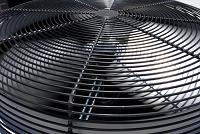
However, several things can cause your unit to operate at less than perfect efficiency. By addressing these installation factors, you can get the kind of efficiencies and savings you're expecting.
Airflow
One of the most important aspects of a high-efficiency air conditioner installation is proper airflow. For example, a 40 percent reduction in airflow can drop the SEER efficiency of your unit from a 12 to 11. This low airflow can be caused by a mismatch between the indoor and outdoor units, ducts that aren't large enough, poor duct layout or improperly placed grilles.
Charge
The refrigerant charge in your system can significantly affect the efficiency of your high-efficiency air conditioner installation. Studies have shown that 70 percent of systems are improperly charged, and this can have a significant impact on the energy efficiency of the system, particularly if it doesn't have a thermal expansion valve to compensate.
Tight ducts
If you have poorly insulated or sealed ducts, you could be losing conditioned air through the leaks and allowing unconditioned air into your home. In addition, if your ducts are uninsulated, you can also be losing energy by direct heat transfer. Studies show that the average home loses 35 percent of its cooling capacity this way.
Size
Another important factor affecting the efficiency of your system is size. While it's true that an undersized system won't provide the cooling your home needs, an oversized system also has problems, such as turning on and off too frequently and increased humidity levels.
Your high-efficiency air conditioning installation is a big investment, and you want to get the most out of it. If you have further questions about this, please contact Rodenhiser Plumbing, Heating & Air Conditioning. We've served the 495 /128 area of Medway MA since 1928, and our team of courteous and experienced professionals will be happy to help you.
Image via Shutterstock.com